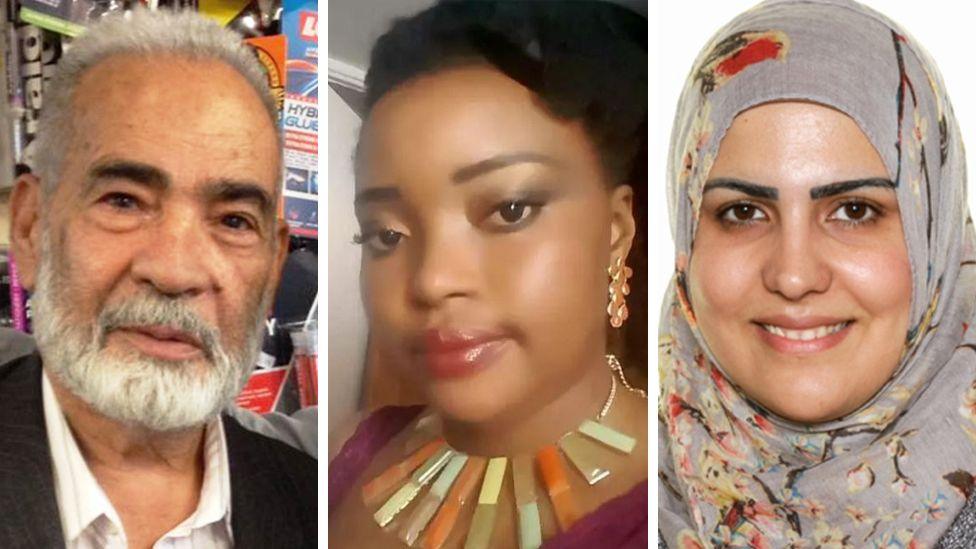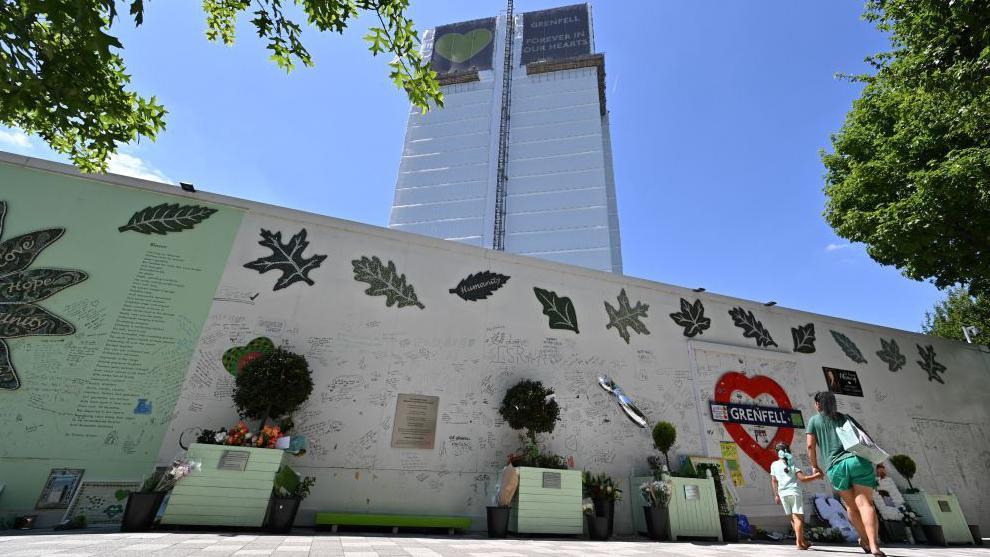Rayner defends handling of Grenfell Tower meeting
- Published
Angela Rayner has defended her handling of a meeting with bereaved families and survivors of the Grenfell Tower fire last week, after some attendees described it as a "car crash".
The deputy prime minister told the meeting on Wednesday that the 24-storey tower would be gradually dismantled, nearly eight years after a fire that killed 72 people.
The decision received mixed reaction from those impacted by the tragedy, following years of debate over the tower's future.
Rayner told the BBC's Sunday with Laura Kuenssberg she does not feel she was "aggressive" during the meeting, saying: "If anyone felt that way, then I would be sincerely upset about that".
Kimia Zabihyan, from Grenfell Next of Kin, which acts for some bereaved families, described the meeting as "charged" but said Rayner appeared to have attended with the "best of intentions".
Grenfell United, which also represents some bereaved families and survivors, said no-one at the meeting supported the plan, and called ignoring their wishes "disgraceful and unforgiveable".
"I think what I tried to do is take a really difficult meeting, and explain to people...knowing full well that whatever I said in that room that night was going to be very traumatic for people, and people would be upset," Rayner said.
The decision to dismantle the building, which was formally announced on Friday, came after engineers advised the tower was significantly damaged, the government said.
It added that experts advised that the condition of the building would "continue to worsen over time" and that it only remains stable due to additional protective measures put in place.
Engineers have also said it is "not practicable to retain many of the floors of the building in place" as part of a permanent memorial.
Some people wanted the west London tower to remain standing as a lasting reminder of the tragedy, while others called for it to be removed completely.
Rayner, who was also accused by some of failing to properly consult with survivors, said "there isn't a consensus" over the building's future, but that she had taken part in multiple meetings with different families and community groups.
"I felt, weighing up all of the different conversations that I had, and the engineering report, that actually the only way forward really was to sensitively make sure that we start taking the tower to ground level, but that we have a lasting memorial on that site," she told the programme.
She said she was determined to work with the families to develop a "lasting memorial" to "do justice to what is a sacred place".
The fire in 2017, which claimed 72 lives, was originally caused by a faulty fridge in a fourth-floor flat, but quickly spread around the block because it was covered in highly flammable cladding.
A public inquiry concluded in September that the disaster had been the result of numerous government and construction industry failures.
The Grenfell Tower Memorial Commission has been consulting on plans for a memorial in the area of the tower.
Five design teams have been shortlisted to create the memorial, with the winner aiming to submit a planning application in late 2026.
Related topics
- Published4 September 2024

- Published6 February
